Harry Parker: 'Losing my legs is one of the better things that happened to me. I’ve had a more interesting life'
The former soldier, author and double amputee Harry Parker on how The Duchess of Cornwall helped him rediscover his creativity. Interview by Paula Lester; portrait by Clara Molden.
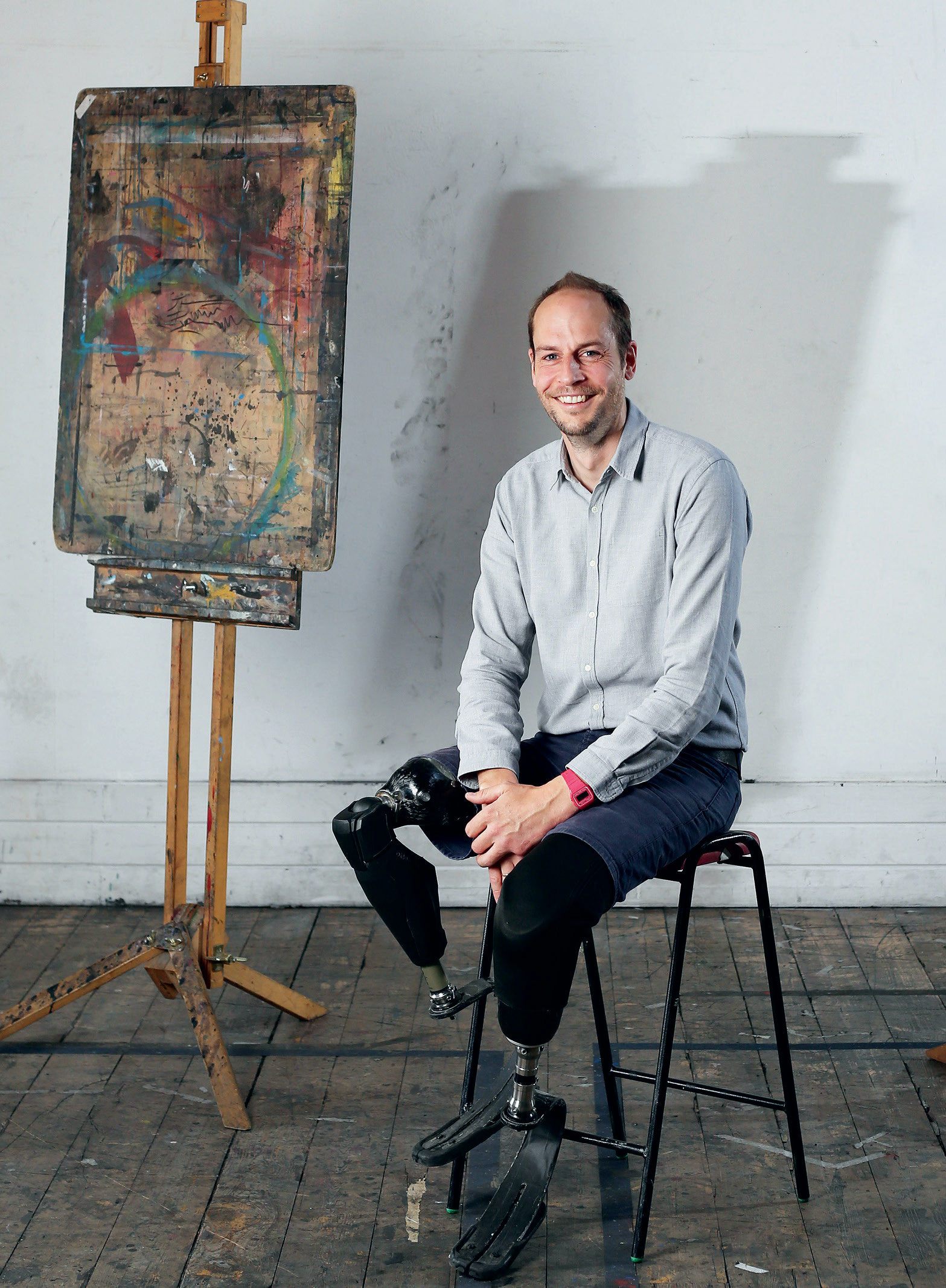
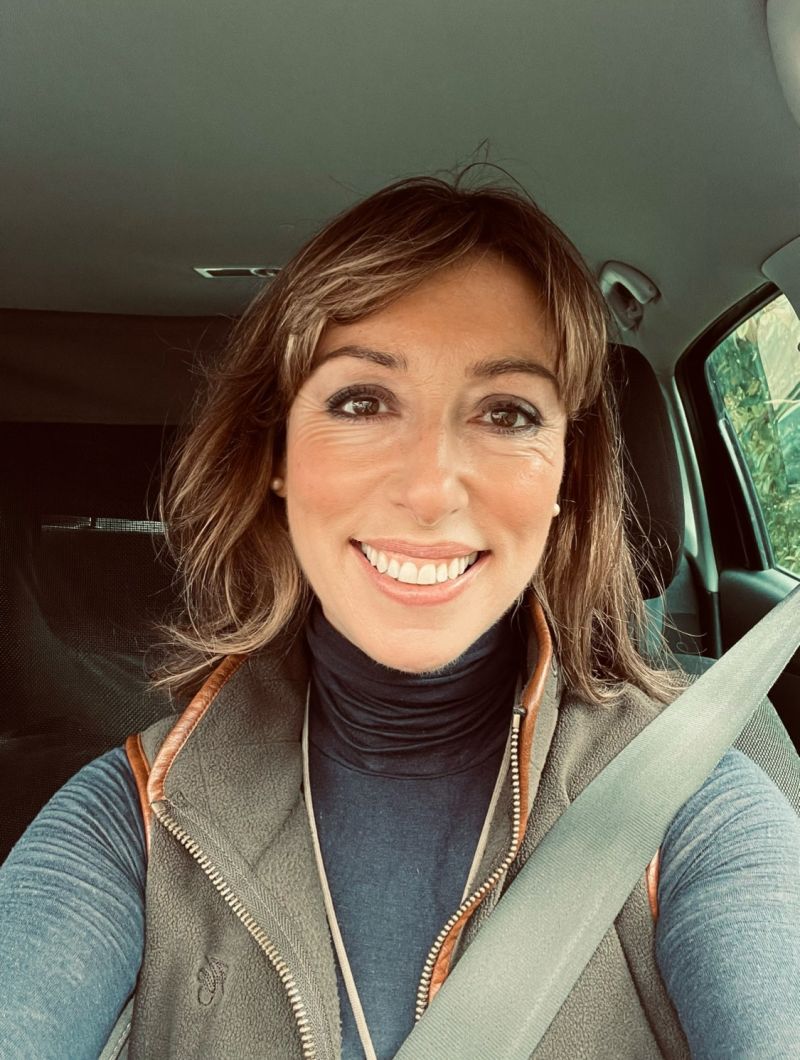
‘I open my eyes to the ward… I lie and stare at the wall and become aware of my body. A roll call of body parts checking in. It’s too painful and strange to be me — I am dislocated from this broken flesh. My nerves have been shocked by explosives and everything below the neck is fizzing. There is a whirring also: the analgesia dulling the pain, retuning its frequency so it is just white noise. I feel for my legs along the map of synapses I’ve known a lifetime, but now my legs are distant, shimmering in a kind of hot furnace beyond my leaden arms and aching back and through the sharpness of lesions and bruising and the fizzing white noise blossoms into pain.’ — Harry Parker, Hybrid Humans
Searingly honest, yet quietly optimistic, Harry Parker’s latest book, Hybrid Humans — about how technology can make us more human — begins with a visceral account of how, at 26, he lost both legs after stepping on an IED when serving as a captain in the 4th Battalion of The Rifles in Afghanistan in 2009.
Dressed in shorts, his curved black prosthetic blades resting on the bottom rung of a stool in the life-drawing room of The Royal Drawing School (TRDS) in Shoreditch, Mr Parker calmly recalls the moment that — as his young son, Joe, tells curious strangers — ‘he stepped on a bomb’. ‘We were out on night patrol, trying to catch the enemy — who, annoyingly, used to attack the base every morning — and were on our way back when we got into a firefight. I walked across a field and onto an IED,’ he explains. ‘It felt like being flipped over and chucked on the ground and initially, I thought: “I’ll stand up now and dust myself off”. But then, all the soldiers and the medics were around me and, basically, stopped me dying in that field.’
Although it’s extremely unlucky that Mr Parker stepped on a device that instantly blew off his left leg and irreparably ‘knackered’ his right, which had to be amputated due to a fungal infection, he considers himself fortunate to have been injured within a helicopter ride of Camp Bastion, where he received the best complex trauma treatment in the world. ‘I’m probably more mobile on my prosthetics now than I would have been if they had been able to save my right leg,’ he says cheerfully.
As Mr Parker, 38, describes the sequence of horrific events, it seems incredible that, despite being sedated and ‘completely out of it’, he was back in Britain within 24 hours. It was during his recuperation at Headley Court, Surrey, where he underwent a year-long rehabilitation programme, that a conversation with his battalion’s Royal Colonel, The Duchess of Cornwall, changed his life. In a typically warm and valued gesture, The Duchess had a private meeting with the injured soldiers from her regiment, in which she gave each of them a bottle of whisky and discussed their career prospects over tea and biscuits.
Harry Parker: On The Record
- Where is your favourite place in Britain? London—no one stares
- Favourite building? Anything made out of Lego
- Book? I Remember (Joe Brainard)
- Film? Karate Kid
- Music? Only You (Yazoo)
- Food? Anything between two slices of bread
- Dinner guest? Pablo Picasso
During her hour-long visit, Mr Parker gave The Duchess a print of a painting he’d done when on tour in Iraq in 2007; she subsequently wrote to suggest that he take some classes at TRDS, founded by her husband, The Prince of Wales — and the artist Catherine Goodman — in 2000.
‘I remember her visit so clearly and the one made by The Prince when I’d just come out of surgery at Selly Oak Hospital in Birmingham,’ recalls Mr Parker. ‘It was a great morale boost to know they were rooting for us.’
Sign up for the Country Life Newsletter
Exquisite houses, the beauty of Nature, and how to get the most from your life, straight to your inbox.
The Duchess was right on the money in pointing Mr Parker in a fine-art direction, for, although he’d grown up in a military family — his father is retired Gen Sir Nick Parker KCB CBE, former Commander in Chief of the UK land forces — Mr Parker initially studied art, via a foundation course at Falmouth and a degree in history of art at University College London. Once he ‘was all fixed’, he began attending life-drawing evening classes at TRDS. ‘A lot of injured soldiers go on to do something physical, but coming here gave me the chance to be creative again.’
Still in the process of leaving the army — he had jobs with the Ministry of Defence and the Foreign Office — Mr Parker held a one-man show inspired by his experience of conflict and tried to capture the buzz of London life on canvas. ‘But I could never really say what I wanted to visually, so I started to write.’
With the encouragement of his wife, Caro — with whom he has two children: Sophie, six, and Joe, four — Mr Parker quit the military to write an autobiographical novel, Anatomy of a Soldier (2016), before a postgraduate drawing course at the TRDS, where he’s now deputy director and director of Education.
He’s also writing another book, but he won’t elaborate, because he’s made that mistake before and it didn’t get published. ‘Getting an email from the publisher saying this isn’t right was far worse than being blown up,’ he admits.
The assumption that anyone who’s been wounded in combat has post-traumatic stress disorder (PTSD) doesn’t sit easily with him, either. ‘I don’t agree that, if you are an injured soldier, you must be mentally damaged. We need to look after those with PTSD, but a lot of us don’t have it and we want to be an asset to society. In my experience, there can be post-traumatic growth and, although it’s awful, good can be found in it. Waking up and being told you’ve lost your legs is destabilising and, at times, I was very sad.
‘But you put it into context very quickly — you’re still alive and your life has meaning. It’s one of the better things that happened to me. I’ve had a more interesting life and feel lucky for everything I have.’
Harry Parker’s latest book, Hybrid Humans: Dispatches from the Frontiers of Man and Machine (Profile Books, £14.99), a BBC Radio 4 Book of the Week, is out now. Find out more about The Royal Drawing School, London, at www.royaldrawingschool.org
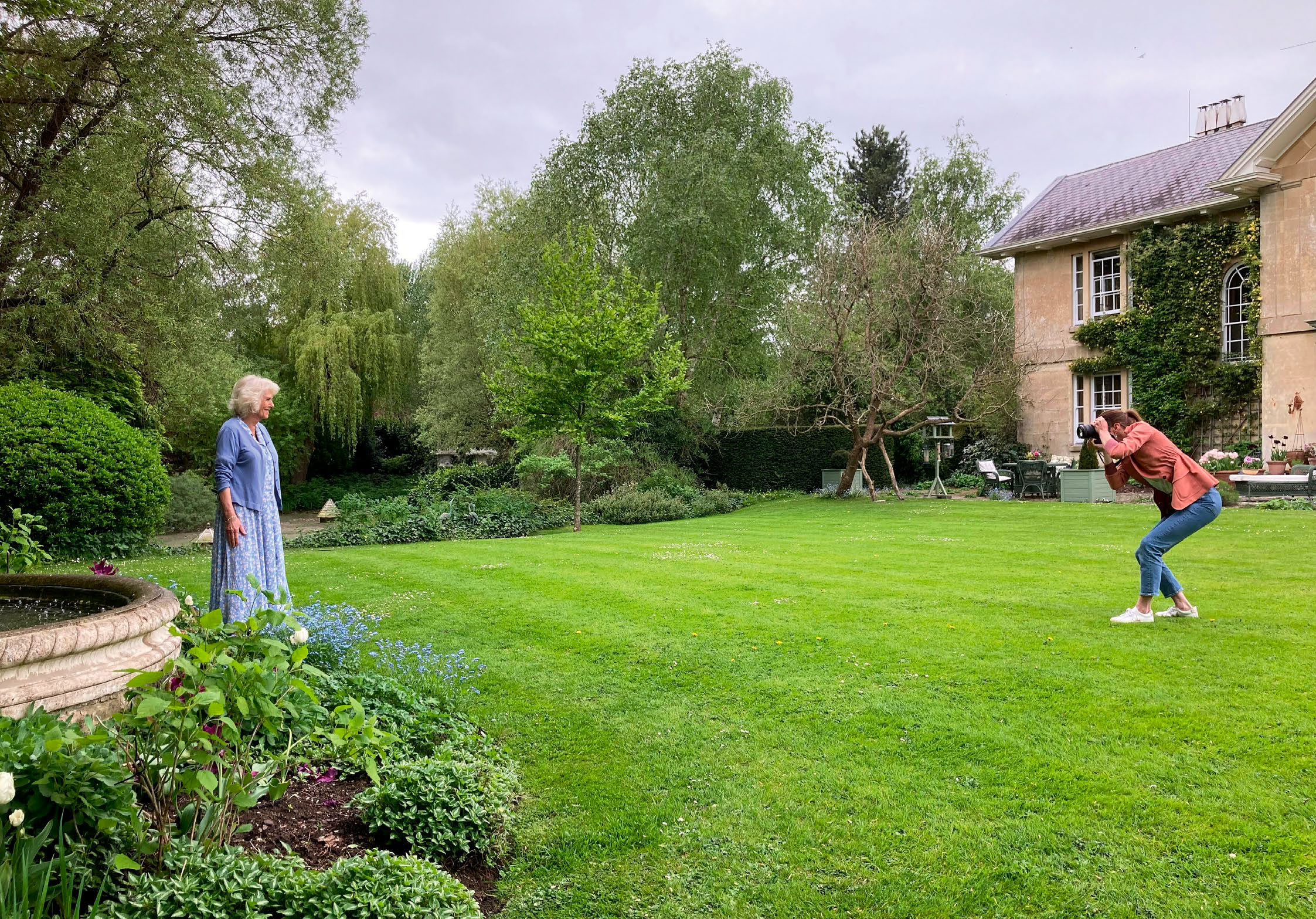
The Duchess of Cornwall, as photographed by The Duchess of Cambridge for Country Life
The upcoming 13 July 2022 issue of Country Life is being guest-edited by HRH The Duchess of Cornwall — and
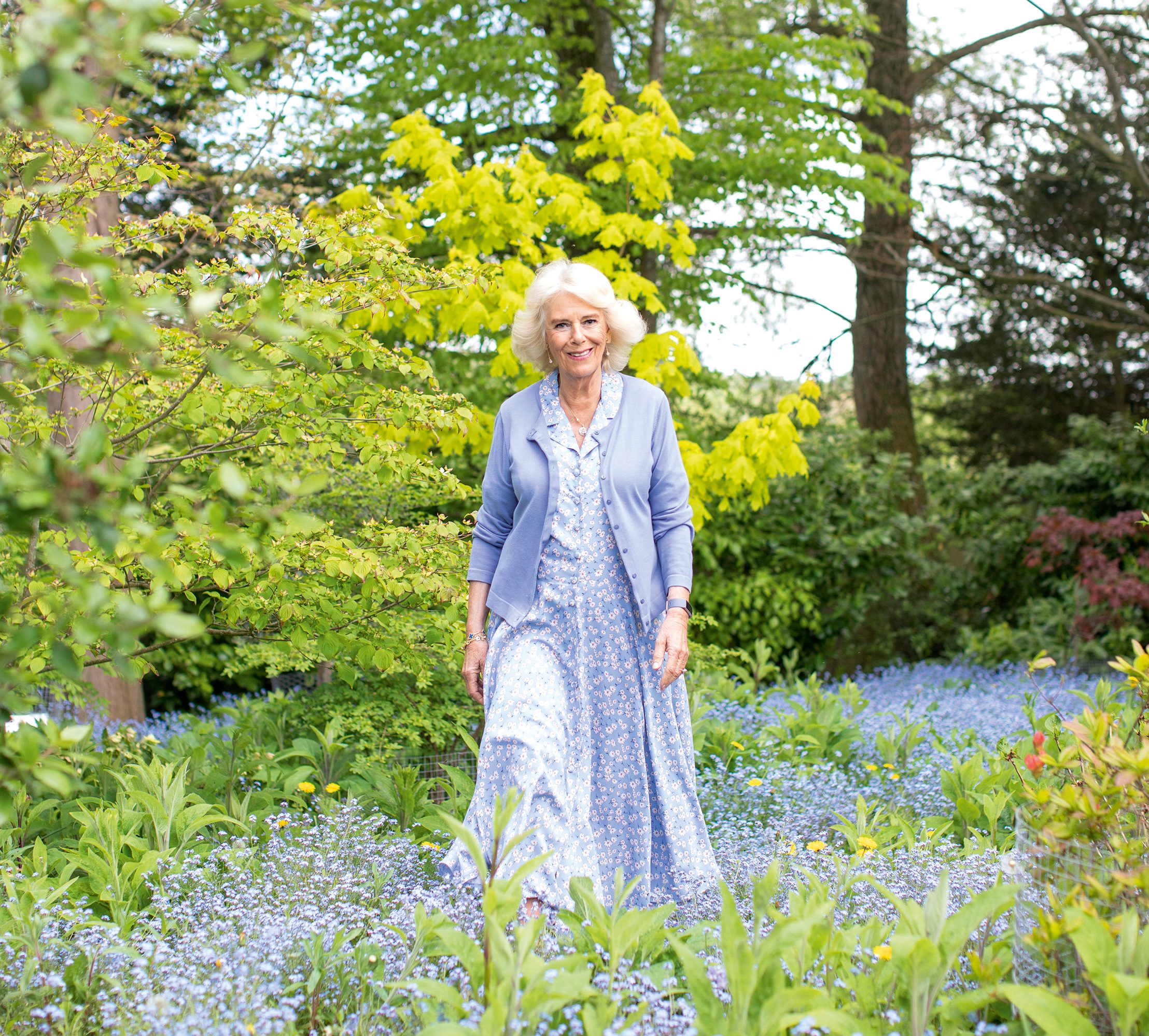
The Duchess of Cornwall: ‘I have a profound sense of being at home in the countryside’
In her leader article in the 13th July 2022 issue of Country Life, guest editor HRH The Duchess of Cornwall
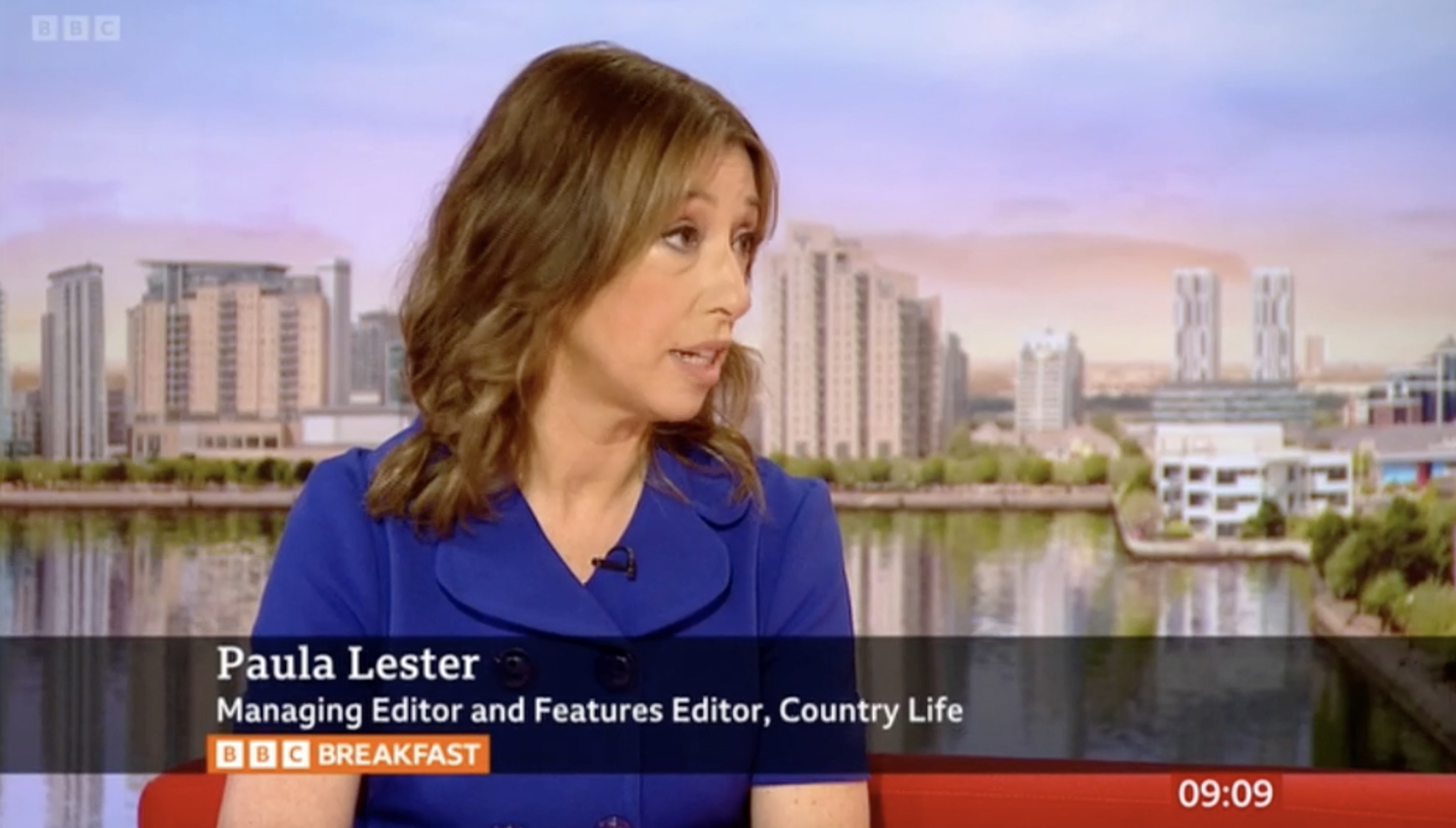
Video: The Duchess of Cornwall's guest-edit of Country Life, as featured on the BBC
Watch Paula Lester on BBC Breakfast discussing The Duchess of Cornwall's guest-edit of Country Life magazine, out on 13th July
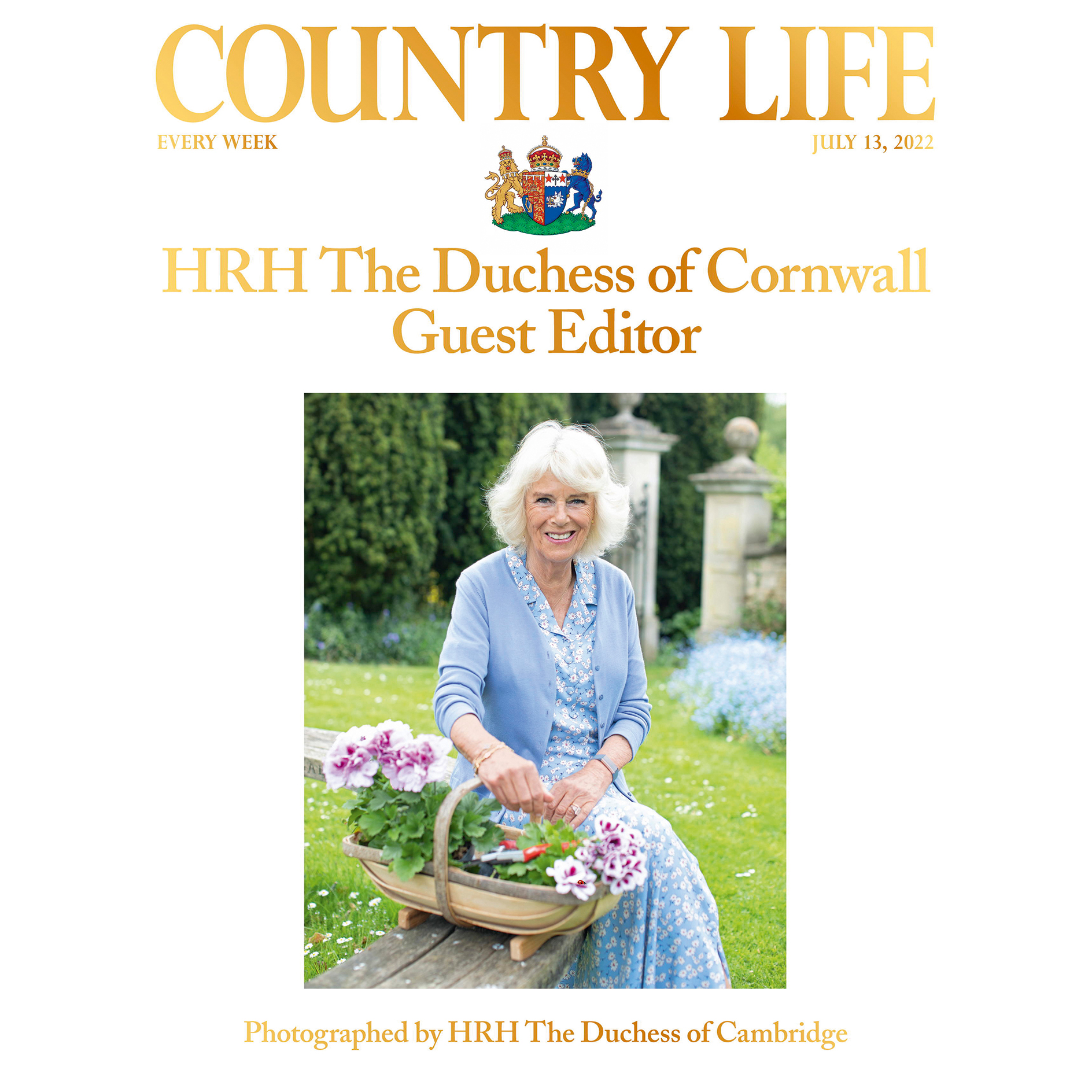
Credit: Country Life
What's inside The Duchess of Cornwall's guest-edited issue of Country Life — and how to get your copy
We're thrilled and delighted that HRH Camilla, Duchess of Cornwall, has guest edited the 13 July 2022 edition of Country
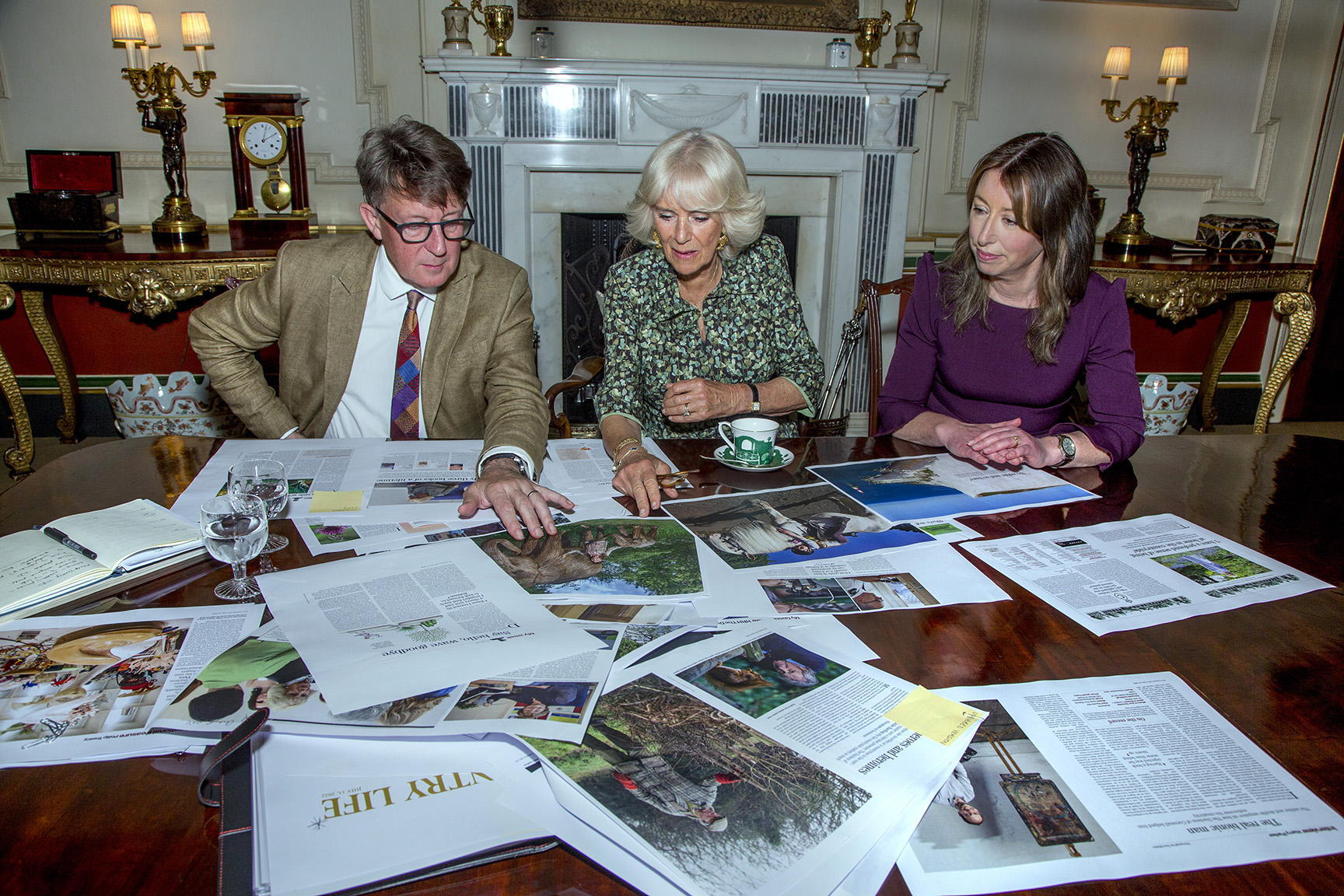
The behind-the-scenes story of The Duchess of Cornwall's guest-edit of Country Life
The 13 July 2022 edition of Country Life, guest-edited by HRH Camilla, Duchess of Cornwall, has been a huge effort
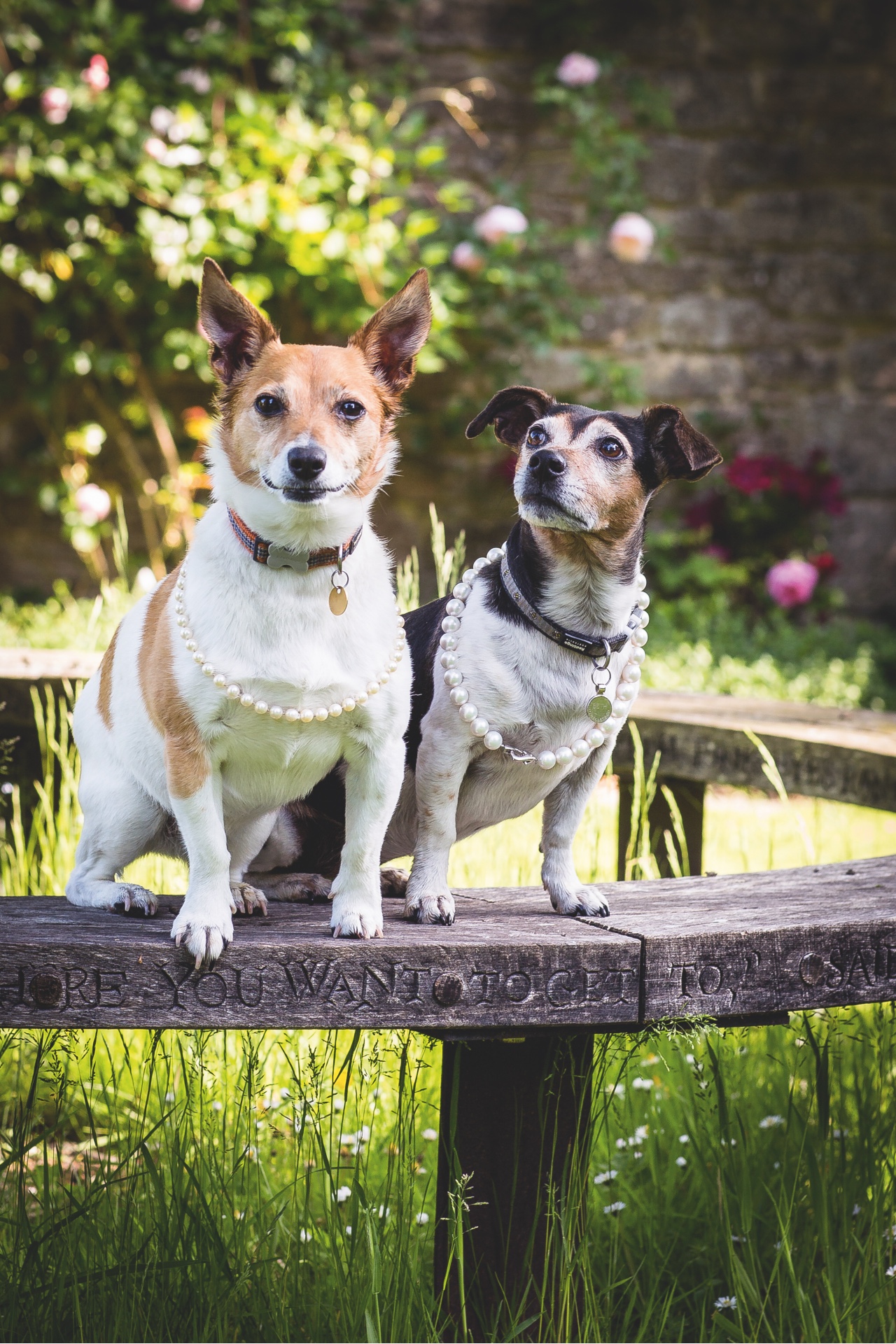
The Duchess of Cornwall's rescue dogs adorn a royal frontispiece like you've never seen before
This week’s frontispiece breaks from tradition — but they’re still ‘Girls in Pearls’.
An experienced journalist, Paula Lester, Country Life's Managing & Features Editor, has worked for the magazine for 10 years — during which time she’s overseen two special issues guest-edited by His Majesty The King in 2013 and in 2018, and the bestselling 2022 edition masterminded by his wife, Queen Camilla. A gamekeeper’s daughter, Paula began her career as a crime reporter on The Sidmouth Herald in Devon, before becoming Pony Club & Young Rider Editor, then Racing Editor, at Horse & Hound. Paula lives in Somerset with her two working Labradors, Nimrod and Rocky.
-
 380 acres and 90 bedrooms on the £25m private island being sold by one of Britain's top music producers
380 acres and 90 bedrooms on the £25m private island being sold by one of Britain's top music producersStormzy, Rihanna and the Rolling Stones are just a part of the story at Osea Island, a dot on the map in the seas off Essex.
By Lotte Brundle
-
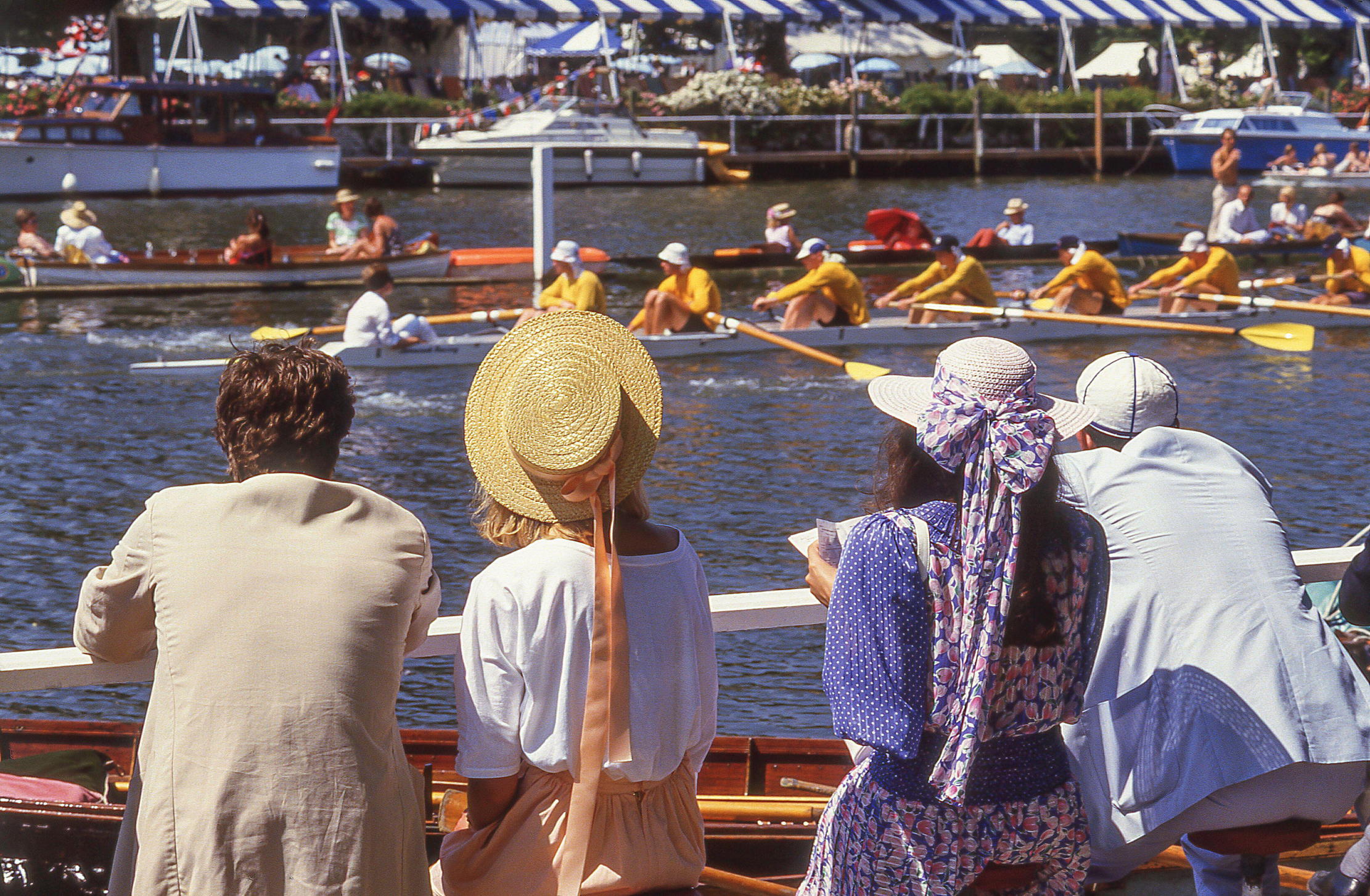 'A delicious chance to step back in time and bask in the best of Britain': An insider's guide to The Season
'A delicious chance to step back in time and bask in the best of Britain': An insider's guide to The SeasonHere's how to navigate this summer's top events in style, from those who know best.
By Madeleine Silver